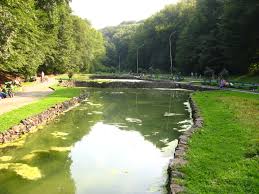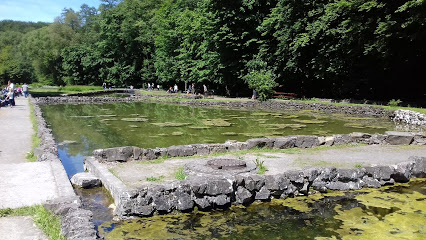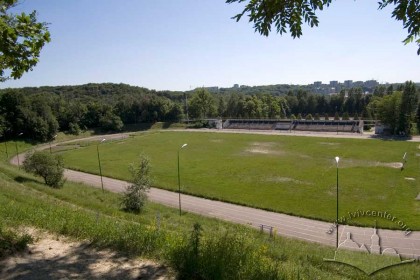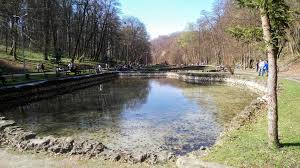In the 17th century, the present Pogulanka was part of the so-called Attelmayer Apiary, a country house in which the governor of Lviv city, Jean Attilmeyer, settled on rented peasants. The first to build his estate here was the Dami family. Thereafter, these lands changed their owners several times, and even at the beginning of the nineteenth century, part of the village was bought by the lawyer of Lviv known Frantsyshek Venglinsky. He also built a drug here. A great entertainment lover, in the beautiful countryside of the trees, he arranged loud entertainment, and invited them to his friends, who did not include many representatives of Lviv Intel, including actors and writers. Thanks to this Hungarian, this place became an amusement park, and the area adjacent to the property was named in his honor - "Hungarian Forest".
In 1821, Pogulanka was purchased by the owner of the restaurant Johan Distel and planted a garden here.
In the mid-19th century, these lands became the property of Jean Klein. The new owner arranged the area, drained it, and built a brewery in place. For many years Klein was considered the best beer in Lviv. The restaurant Pogulyanka is famous for its chicken and grilled dumplings with sour cream, and in the summer pavilion for fans of Myson dessert for outdoor entertainment, treat a wonderful ice cream of different kinds.
In the early 20th century, Pogulanka lost its former attractiveness to some extent due to the emergence of industrial sites and the beginning of the development of speculation in the surrounding area. During World War I, the park was completely deserted, roads were swept, and beech forests were cut into wood.
After the arrival of Soviet power, in 1940, work began on the establishment of the city's garden of culture and entertainment "Pogulanka". Then the work of clearing and arranging the rocky garden land began, and reservoirs appeared along the main alley. But all overtime plans in the park have been halted by the outbreak of war. Instead, there was a zoo that could even see these exotic animals, for example, zebra. During the German occupation, work in the park stopped, but after the resumption of war.
In 1962, a forest park project "Pogulanka" was developed, which was implemented over the next few years.
In 1989, the asphalt track was laid by Pogulanka Park, and the three basins through which Pasika Stream flows are covered with stones and concrete. A garden alley lighting project was also developed, and lanterns were installed, but they did not work for their full existence.
At the beginning of the 21st century, two farms remained inside the Bogolanka Park: one with the title - ul. Pasichna, 86 a and 88 a, the other - the street. Vakhnyanina, 39, is located in the depths of a park near the former church of the Armenian Benedictine nuns, built in 1897. The temple is now owned by the parish of the Mother of the Eternal God of the Council. A few people, mostly residents of a nearby farm, visit it.
Today, Pogulanka is a forest garden with a well-maintained central alley and ponds along its length. For the residents of Lviv forest park has become one of the favorite picnic areas. Walking can be reached by tram 1, and the final stop is located near the main entrance of the forest park.





